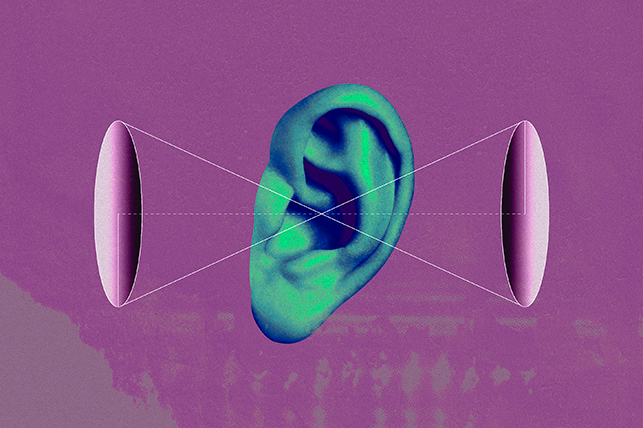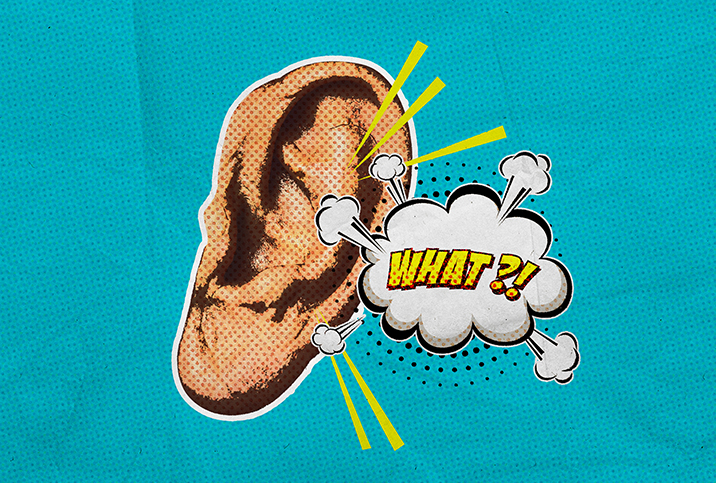Hearing Loss After Chemotherapy Is All Too Common

Cancer patients undergoing chemotherapy likely expect to experience side effects such as nausea or hair loss. But another side effect that's also very common is hearing problems. A recent study from researchers at the University of California, San Francisco and the University of Pittsburgh found more than half of adult patients who received chemotherapy experienced hearing loss as a result of their treatment.
The researchers used an audiogram to measure the hearing of 273 survivors of various cancers, including breast, gastrointestinal, gynecological and lung cancers. The participants' average age was 61, and they had completed treatment about five years earlier. The study subjects were split into three groups based on the class of chemo drugs they'd been administered during their treatment: a platinum-based drug alone, a taxane drug alone or a combination of the two.
Researchers found more than half of them had significant hearing loss, defined as scoring lower than the 50th percentile for their age and gender. More than 35 percent reported having tinnitus, or ringing in the ears. Interestingly, some of the study's participants reported they did not have any hearing loss, though the audiology tests confirmed they actually did.
"No differences were found among the three chemotherapy groups in the occurrence rates or effects of hearing loss and tinnitus," the study authors wrote.
The study, which was published in July 2022 in the journal BMJ Supportive & Palliative Care, was funded by the National Cancer Institute and the American Cancer Society. It sheds light on a potentially permanent side effect that can have a profound impact on a survivor's quality of life even years after beating cancer. Hearing loss later in life puts people at higher risk of depression and anxiety, and can make existing mental health issues worse, according to the National Institute on Aging.
They're also more likely to experience social isolation and loneliness. Other research has also found older adults with hearing loss are at a greater risk of developing dementia than those with normal hearing, as cognitive abilities decline more rapidly.
How can chemo damage hearing?
Hearing loss caused by chemotherapy typically occurs in both ears. Patients may experience tinnitus first, with the ringing progressing to hearing loss. Radiation, if administered in high doses to the head or brain, can also cause hearing damage, though the impairment is usually just in the exposed ear, not both ears.
Several types of medications are considered ototoxic—drugs that can cause hearing loss—including certain antibiotics, nonsteroidal anti-inflammatory drugs (NSAIDs), salicylates and certain chemotherapy drugs. These medications cause ototoxicity in different ways, according to a 2019 study published in the Journal of the American Association of Nurse Practitioners.
The platinum-based chemo drugs cisplatin (Platinol) and carboplatin (Paraplatin), which are prescribed for an estimated 10 percent to 20 percent of cancer patients, affect the inner ear and cause tinnitus or hearing loss. In 2017, researchers from the National Institutes of Health found that while cisplatin left most parts of the body within days or weeks, it remained in the cochlea (part of the inner ear) "indefinitely," causing hearing loss in 40 percent to 80 percent of adults and up to 50 percent of children who take it. The inner ear appears to be more vulnerable to damage caused by the drug.
Prevention and treatment
Currently, there are no FDA-approved therapies to reduce or prevent cisplatin ototoxicity, according to a 2021 study that looked at whether the use of a statin drug during chemotherapy could prevent or decrease hearing loss in head and neck cancer patients taking cisplatin. The researchers found a reduction in both the incidence and severity of hearing loss in the patients taking the statin drug.
Cisplatin appears to damage the inner ear due to its significant free-radical activity, and other research has looked at adding antioxidant treatment to chemotherapy protocols to prevent inner-ear damage, said Yelena Deshko, N.D., a Toronto-based general family practitioner with a focus on integrative oncology.
A small 2017 study found adding an antioxidant to intravenous cisplatin therapy protected against cisplatin-related hearing loss in children ages 1 to 18 undergoing chemotherapy.
"Unfortunately, as the hearing loss caused by cisplatin is permanent, there are few solutions which can be offered after the fact," Deshko said. "In this case, it is best to prevent the potential damage by discussing strategies with your oncologist. For those who have suffered hearing loss post-chemotherapy, a cochlear implant may be of great help."
But very few of the study's participants used a hearing aid, study co-author Christine Miaskowski, R.N., Ph.D., of the UCSF Helen Diller Family Comprehensive Cancer Center, said in a UCSF news release.
"Only 17 percent of the survivors in our study were using a hearing aid, which suggests that clinicians need to refer survivors for a hearing test on a routine basis," Miaskowski said.


















